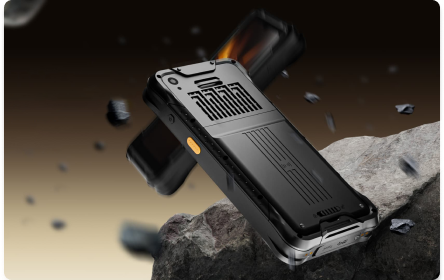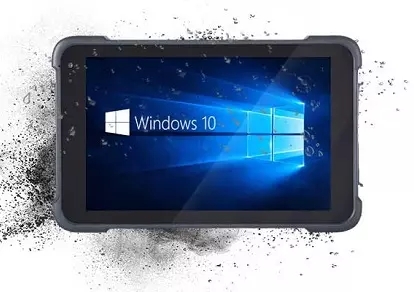
Os PCs industriais são computadores especialmente projetados para ambientes de computação agressivos. Eles são construídos para suportar temperaturas e condições climáticas adversas e para operar de forma confiável em ambientes empoeirados e sujos. Esses PCs são comumente usados nas indústrias de manufatura, transporte e petróleo e gás, e são ferramentas essenciais que ajudam as organizações a gerenciar melhor suas operações. Neste artigo, iremos fornecer-lhe as informações de que precisa para escolher o PC industrial certo para as suas necessidades.

Como se escolhe um PC industrial?
Ao selecionar um PC industrial, há vários fatores importantes a serem considerados, incluindo o ambiente em que ele será usado, os aplicativos que ele executará e sua confiabilidade e durabilidade. Aqui estão algumas considerações importantes a ter em mente:
RAM: A quantidade de memória de acesso aleatório (RAM) necessária depende em grande parte do tipo de aplicativos e tarefas que você estará executando no PC industrial. Geralmente, quanto mais RAM o dispositivo tiver, melhor será o desempenho que ele será capaz de fornecer.
Armazenamento: PCs industriais vêm com diferentes opções de armazenamento, como unidades de estado sólido (SSDs), unidades de disco rígido (HDDs) ou uma combinação de ambos. Diferentes tipos de armazenamento têm diferentes vantagens e desvantagens, então considere qual nível e tipo de armazenamento seria melhor para suas necessidades.
E/S: PC robustoNormalmente terá várias opções de E/S, dependendo da tarefa em mãos. Exemplos de opções de E/S incluem várias portas para USB, HDMI, Bluetooth, Wi-Fi e muito mais. Considere quais tipos de portas de E/S você precisa para suas tarefas e garanta que o PC industrial escolhido tenha essas portas.
Conexão de rede: O tipo de conexão de rede que você precisa depende do ambiente que seu PC industrial será usado. Diferentes tipos de conexões incluem com fio, sem fio, 4G e muito mais. Pesquise qual tipo de conexão atenderá melhor às suas necessidades.
Faixa de temperatura: Procure um PC industrial com ampla faixa de temperatura. Isso ajudará a garantir que o dispositivo funcione bem em ambientes e condições variados, como calor ou frio extremos.
Potência: Verifique se o PC industrial escolhido tem uma entrada de energia apropriada. Isso garantirá que seja compatível com a estrutura elétrica e as tomadas disponíveis em seu local de trabalho.
Forma: Considere o tamanho e a forma de um PC industrial que melhor se adapte ao seu espaço de trabalho. As opções incluem desktop, montado na parede, montado em rack e free-standing.
Montagem: Considere se o PC industrial requer montagem e, em caso afirmativo, o tipo de montagem necessária. Verifique se o dispositivo vem com acessórios adequados.
Ciclo de vida: PCs industriais tendem a ter uma vida útil bastante longa, no entanto, alguns são construídos para durar mais do que outros. Considere quanto tempo você precisa do seu PC industrial e selecione um em conformidade.
Regulatório: Existem vários requisitos de conformidade para PCs industriais, por isso é importante garantir que o dispositivo escolhido atenda aos requisitos regulamentares necessários.
Orçamento: Por fim, é importante considerar o seu orçamento. Decida quais recursos e capacidades você precisa do seu PC industrial e defina um orçamento para o custo total do dispositivo, bem como quaisquer recursos adicionais.
Ao levar em conta todos esses fatores, você pode garantir que escolhe o PC industrial certo para suas necessidades.
Quais são os benefícios dos PCs industriais?
Os PCs industriais são projetados para funcionar em condições industriais extremas e são usados em uma variedade de ambientes, incluindo manufatura, data centers, centros de distribuição e armazéns. Eles possuem hardware sólido e software confiável para alimentar e gerenciar várias tarefas, como captura de dados em alta velocidade, processamento de dados e controle da máquina. PCs industriais oferecem muitos benefícios, incluindo:
Desempenho robusto
Os PCs industriais são projetados para suportar altas temperaturas e umidade, além de serem resistentes a poeira, corrosão e outros elementos. Eles vêm equipados com processadores poderosos, ampla memória e discos rígidos rápidos, para que possam lidar com uma variedade de tarefas de computação, desde automação industrial até processamento de dados.
Manutenção fácil
Os PCs industriais têm componentes modulares, por isso é fácil e econômico substituir peças que se tornaram desgastadas ou obsoletas. Isso os torna ideais para empresas com necessidades grandes e variáveis. Também elimina a necessidade de investimentos de capital de longo prazo, permitindo cronogramas de manutenção mais flexíveis.
Baixo consumo energético
Os componentes em um PC industrial são muitas vezes mais eficientes em termos de energia do que os encontrados em PCs desktop, permitindo economias significativas nos custos de energia. Alguns PCs industriais estão equipados com recursos de economia de energia, como o modo de suspensão automático e um design sem ventoinha, que ajudam a economizar energia ainda mais.
Durabilidade robusta
Os PCs industriais geralmente são projetados para serem à prova d'água, à prova de choque e resistentes a vibrações, tornando-os adequados para aplicações que envolvem trabalho manual que consome tempo e dinheiro. A durabilidade e a longevidade dos PCs industriais garantem que eles resistam aos rigores das duras condições industriais.
Recursos avançados segurança
PCs industriais vêm com recursos de segurança robustos que protegem informações confidenciais e impedem o acesso não autorizado a máquinas industriais, processos e redes. Isso os torna perfeitos para tarefas como coletar ou transmitir dados confidenciais ou executar processos industriais automatizados.
Confiabilidade: PCs industriais são projetados para serem confiáveis em ambientes extremos, reduzindo o tempo de inatividade e permitindo que as empresas concluam suas tarefas com mais eficiência. Eles são capazes de lidar com grandes quantidades de dados e geralmente são equipados com protocolos de segurança superiores, tornando-os ideais para empresas que exigem poder de processamento e proteção de dados de ponta.
Flexibilidade e personalização
Os PCs industriais estão disponíveis em uma variedade de formatos, como desktop, montagem em rack, laptop e montagem em painel, tornando-os adequados para qualquer aplicação. Além disso, esses PCs podem ser personalizados para atender aos requisitos específicos do setor, como software e hardware especializados.
Sistema Operacional
Os PCs industriais usam um sistema operacional (SO) especialmente projetado para oferecer a melhor experiência em um ambiente industrial. O sistema operacional é projetado para estabilidade e confiabilidade, para que seu PC continue a trabalhar em temperaturas extremas e condições adversas. Ele também possui recursos avançados de segurança, para que você possa se sentir confiante de que seus dados valiosos estão seguros.
Armazenamento, memória e expansão
Finalmente, os PCs industriais apresentam muitas opções de armazenamento, memória e expansão. Você pode expandir a memória do computador facilmente, permitindo que você armazene mais dados e execute programas mais complexos. Você também pode adicionar armazenamento adicional, como unidades externas, para aumentar sua capacidade. Com muitas possibilidades de expansão, os PCs industriais podem ser adaptados às necessidades de qualquer empresa.
Em conclusão, escolher o PC industrial certo é essencial para qualquer organização que opera em um ambiente hostil. Ao considerar o ambiente em que o PC será usado, o desempenho necessário, as opções de expansão necessárias e sua confiabilidade e durabilidade, você pode selecionar o Fabricantes industriais do PCQue atendam às necessidades exclusivas da sua organização. Com os benefícios de um PC áspero industrial, Incluindo durabilidade, confiabilidade, personalização, segurança e aumento da produtividade, investir no PC industrial certo vale bem o esforço.









